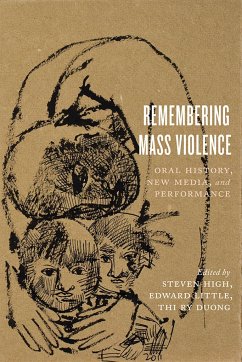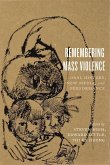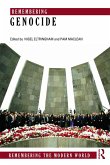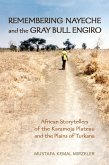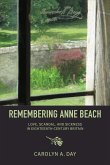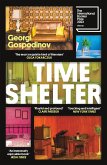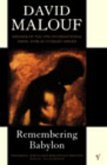Steven High, Edward Little, Thi Ry DuongOral History, New Media, and Performance
Remembering Mass Violence
Oral History, New Media, and Performance
Herausgeber: High, Steven; Duong, Thi Ry; Little, Edward
Steven High, Edward Little, Thi Ry DuongOral History, New Media, and Performance
Remembering Mass Violence
Oral History, New Media, and Performance
Herausgeber: High, Steven; Duong, Thi Ry; Little, Edward
- Broschiertes Buch
- Merkliste
- Auf die Merkliste
- Bewerten Bewerten
- Teilen
- Produkt teilen
- Produkterinnerung
- Produkterinnerung
Remembering Mass Violence breaks new ground in oral history, new media, and performance studies by exploring what is at stake when we attempt to represent war, genocide, and other violations of human rights in a variety of creative works.
Andere Kunden interessierten sich auch für
![Remembering Mass Violence Remembering Mass Violence]() Remembering Mass Violence78,99 €
Remembering Mass Violence78,99 €![Remembering Genocide Remembering Genocide]() Remembering Genocide59,99 €
Remembering Genocide59,99 €![Remembering Nayeche and the Gray Bull Engiro Remembering Nayeche and the Gray Bull Engiro]() Mustafa Kemal MirzelerRemembering Nayeche and the Gray Bull Engiro48,99 €
Mustafa Kemal MirzelerRemembering Nayeche and the Gray Bull Engiro48,99 €![Remembering Anne Beach Remembering Anne Beach]() Carolyn DayRemembering Anne Beach26,99 €
Carolyn DayRemembering Anne Beach26,99 €![It Could Happen Here It Could Happen Here]() Jonathan GreenblattIt Could Happen Here15,99 €
Jonathan GreenblattIt Could Happen Here15,99 €![Time Shelter Time Shelter]() Georgi GospodinovTime Shelter13,00 €
Georgi GospodinovTime Shelter13,00 €![Remembering Babylon Remembering Babylon]() David MaloufRemembering Babylon8,99 €
David MaloufRemembering Babylon8,99 €-
-
-
Remembering Mass Violence breaks new ground in oral history, new media, and performance studies by exploring what is at stake when we attempt to represent war, genocide, and other violations of human rights in a variety of creative works.
Produktdetails
- Produktdetails
- Verlag: University of Toronto Press
- Seitenzahl: 376
- Erscheinungstermin: 7. Januar 2014
- Englisch
- Abmessung: 226mm x 150mm x 23mm
- Gewicht: 566g
- ISBN-13: 9781442614659
- ISBN-10: 144261465X
- Artikelnr.: 38127549
- Herstellerkennzeichnung
- Libri GmbH
- Europaallee 1
- 36244 Bad Hersfeld
- gpsr@libri.de
- Verlag: University of Toronto Press
- Seitenzahl: 376
- Erscheinungstermin: 7. Januar 2014
- Englisch
- Abmessung: 226mm x 150mm x 23mm
- Gewicht: 566g
- ISBN-13: 9781442614659
- ISBN-10: 144261465X
- Artikelnr.: 38127549
- Herstellerkennzeichnung
- Libri GmbH
- Europaallee 1
- 36244 Bad Hersfeld
- gpsr@libri.de
Steven High is professor of History at Concordia University and co-founder of the Centre for Oral History and Digital Storytelling. Edward Little is a professor in the Department of Theatre at Concordia University. Thi Ry Duong is the coordinator of the Cambodian Working Group with the Montreal Life Stories Project.
INTRODUCTION. Edward Little (Concordia University, Theatre) and Steven High
(Concordia University, History)
I Turning Private History into Public Knowledge
Chapter 1. Voices, Places and Spaces. Henry Greenspan (University of
Michigan, Social Psychology and Social Ethics)
Chapter 2. So Far from Home. Lorne Shirinian (Royal Military College of
Canada, Professor Emeritus of Comparative Literature)
II Performing Human Rights
Chapter 3. Soldiers’ Tales Untold: Trauma, Narrative and Remembering
through Performance. Michael Kilburn (Endicott College, Political Science)
Chapter 4. Lamentations: A Gestural Theatre in the Realm of Shadows.
Sandeep Bhagwati (Concordia University, Theatre and Music)
Chapter 5. Turning Together: Playback Theatre, Oral History, and Arts-Based
Research in the Montreal Life Stories Project. Nisha Sajnani (New York
University, Drama Therapy), Alan Wong (Concordia University, Special
Individualized Program), Warren Linds (Concordia University, Applied Human
Sciences), Lisa Ndejuru (Concordia University, Special Individualized
Program)
Chapter 6. Stories Scorched From the Desert Sun: Performing Testimony,
Narrating Process. Hourig Attarian (Concordia University, Centre for Oral
History and Digital Storytelling) and Rachael Van Fossen (Concordia
University, Theatre)
III Oral History and Digital Media
Chapter 7. Oral History in the Age of Social Media Networks: Life Stories
on CitizenShift and Parole Citoyenne. Reisa Levine (The Banff Centre, Arts)
Chapter 8. Co-Creating Our Story: Making a Documentary Film. Noelia
Gravotta (Life in the Open Prison) and Megan Webster (Life in the Open
Prison)
Chapter 9. Connecting the Dots: Memory, Multimedia and Community
Information Integration in Northern Uganda. Jessica Anderson (George
Washington University, Political Science) and Rachel Bergenfield (Yale
University, International Relations)
Chapter 10. Arrival Stories: Using Media to Create Connections in a Refugee
Residence. Michele Luchs (Ministry of Education) and Liz Miller (Concordia
University, Communications)
IV Life Stories
Chapter 11. “So you want to hear our ghetto stories?”: Oral History at
Ndinawe Youth Resource Centre. Robin Jarvis Brownlie (University of
Manitoba, History) and Roewan Crowe (University of Winnipeg, Women’s and
Gender Studies)
Chapter 12. Dishonour, Dispersion, and Dispossession: Race and Rights in
21st-Century North America-A View from the Lower Ninth Ward. D’Ann Penner
(University of California at Berkeley, History)
Chapter 13. The Romance of Reminiscence: Problems Posed in Life Histories
with Activist Pensioners in Argentina. Lindsay DuBois (Dalhousie
University, Sociology and Social Anthropology)
Chapter 14. MÉmoires des Migrations de juifs marocains À MontrÉal. Yolande
Cohen (UniversitÉ du QuÉbec À MontrÉal, History)
V Rwanda in the Aftermath of Genocide
Chapter 15. Viols des femmes Tutsi pendant le gÉnocide: tÉmoignage de Mme
Athanasie. Athanasie Mukarwego (Village of Hope)
Chapter 16. Les viols pendant le gÉnocide des Tutsi: un crime d’envie.
Emmanuel Habimana (The Children Who Lived), Carole Vacher (Montreal Life
Stories), Berthe Kayitesi (University of Ottawa) and Callixte Kabayiza
(Rwanda Working Group)
Chapter 17. Hearing the Untold Story: Documenting LGBTI Lives in Rwanda.
Valerie Love (Human Rights Collections at University of Connecticut Thomas
J. Dodd Research Center)
AFTERWORD. Thi Ry Duong (Montreal Life Stories)
(Concordia University, History)
I Turning Private History into Public Knowledge
Chapter 1. Voices, Places and Spaces. Henry Greenspan (University of
Michigan, Social Psychology and Social Ethics)
Chapter 2. So Far from Home. Lorne Shirinian (Royal Military College of
Canada, Professor Emeritus of Comparative Literature)
II Performing Human Rights
Chapter 3. Soldiers’ Tales Untold: Trauma, Narrative and Remembering
through Performance. Michael Kilburn (Endicott College, Political Science)
Chapter 4. Lamentations: A Gestural Theatre in the Realm of Shadows.
Sandeep Bhagwati (Concordia University, Theatre and Music)
Chapter 5. Turning Together: Playback Theatre, Oral History, and Arts-Based
Research in the Montreal Life Stories Project. Nisha Sajnani (New York
University, Drama Therapy), Alan Wong (Concordia University, Special
Individualized Program), Warren Linds (Concordia University, Applied Human
Sciences), Lisa Ndejuru (Concordia University, Special Individualized
Program)
Chapter 6. Stories Scorched From the Desert Sun: Performing Testimony,
Narrating Process. Hourig Attarian (Concordia University, Centre for Oral
History and Digital Storytelling) and Rachael Van Fossen (Concordia
University, Theatre)
III Oral History and Digital Media
Chapter 7. Oral History in the Age of Social Media Networks: Life Stories
on CitizenShift and Parole Citoyenne. Reisa Levine (The Banff Centre, Arts)
Chapter 8. Co-Creating Our Story: Making a Documentary Film. Noelia
Gravotta (Life in the Open Prison) and Megan Webster (Life in the Open
Prison)
Chapter 9. Connecting the Dots: Memory, Multimedia and Community
Information Integration in Northern Uganda. Jessica Anderson (George
Washington University, Political Science) and Rachel Bergenfield (Yale
University, International Relations)
Chapter 10. Arrival Stories: Using Media to Create Connections in a Refugee
Residence. Michele Luchs (Ministry of Education) and Liz Miller (Concordia
University, Communications)
IV Life Stories
Chapter 11. “So you want to hear our ghetto stories?”: Oral History at
Ndinawe Youth Resource Centre. Robin Jarvis Brownlie (University of
Manitoba, History) and Roewan Crowe (University of Winnipeg, Women’s and
Gender Studies)
Chapter 12. Dishonour, Dispersion, and Dispossession: Race and Rights in
21st-Century North America-A View from the Lower Ninth Ward. D’Ann Penner
(University of California at Berkeley, History)
Chapter 13. The Romance of Reminiscence: Problems Posed in Life Histories
with Activist Pensioners in Argentina. Lindsay DuBois (Dalhousie
University, Sociology and Social Anthropology)
Chapter 14. MÉmoires des Migrations de juifs marocains À MontrÉal. Yolande
Cohen (UniversitÉ du QuÉbec À MontrÉal, History)
V Rwanda in the Aftermath of Genocide
Chapter 15. Viols des femmes Tutsi pendant le gÉnocide: tÉmoignage de Mme
Athanasie. Athanasie Mukarwego (Village of Hope)
Chapter 16. Les viols pendant le gÉnocide des Tutsi: un crime d’envie.
Emmanuel Habimana (The Children Who Lived), Carole Vacher (Montreal Life
Stories), Berthe Kayitesi (University of Ottawa) and Callixte Kabayiza
(Rwanda Working Group)
Chapter 17. Hearing the Untold Story: Documenting LGBTI Lives in Rwanda.
Valerie Love (Human Rights Collections at University of Connecticut Thomas
J. Dodd Research Center)
AFTERWORD. Thi Ry Duong (Montreal Life Stories)
INTRODUCTION. Edward Little (Concordia University, Theatre) and Steven High
(Concordia University, History)
I Turning Private History into Public Knowledge
Chapter 1. Voices, Places and Spaces. Henry Greenspan (University of
Michigan, Social Psychology and Social Ethics)
Chapter 2. So Far from Home. Lorne Shirinian (Royal Military College of
Canada, Professor Emeritus of Comparative Literature)
II Performing Human Rights
Chapter 3. Soldiers’ Tales Untold: Trauma, Narrative and Remembering
through Performance. Michael Kilburn (Endicott College, Political Science)
Chapter 4. Lamentations: A Gestural Theatre in the Realm of Shadows.
Sandeep Bhagwati (Concordia University, Theatre and Music)
Chapter 5. Turning Together: Playback Theatre, Oral History, and Arts-Based
Research in the Montreal Life Stories Project. Nisha Sajnani (New York
University, Drama Therapy), Alan Wong (Concordia University, Special
Individualized Program), Warren Linds (Concordia University, Applied Human
Sciences), Lisa Ndejuru (Concordia University, Special Individualized
Program)
Chapter 6. Stories Scorched From the Desert Sun: Performing Testimony,
Narrating Process. Hourig Attarian (Concordia University, Centre for Oral
History and Digital Storytelling) and Rachael Van Fossen (Concordia
University, Theatre)
III Oral History and Digital Media
Chapter 7. Oral History in the Age of Social Media Networks: Life Stories
on CitizenShift and Parole Citoyenne. Reisa Levine (The Banff Centre, Arts)
Chapter 8. Co-Creating Our Story: Making a Documentary Film. Noelia
Gravotta (Life in the Open Prison) and Megan Webster (Life in the Open
Prison)
Chapter 9. Connecting the Dots: Memory, Multimedia and Community
Information Integration in Northern Uganda. Jessica Anderson (George
Washington University, Political Science) and Rachel Bergenfield (Yale
University, International Relations)
Chapter 10. Arrival Stories: Using Media to Create Connections in a Refugee
Residence. Michele Luchs (Ministry of Education) and Liz Miller (Concordia
University, Communications)
IV Life Stories
Chapter 11. “So you want to hear our ghetto stories?”: Oral History at
Ndinawe Youth Resource Centre. Robin Jarvis Brownlie (University of
Manitoba, History) and Roewan Crowe (University of Winnipeg, Women’s and
Gender Studies)
Chapter 12. Dishonour, Dispersion, and Dispossession: Race and Rights in
21st-Century North America-A View from the Lower Ninth Ward. D’Ann Penner
(University of California at Berkeley, History)
Chapter 13. The Romance of Reminiscence: Problems Posed in Life Histories
with Activist Pensioners in Argentina. Lindsay DuBois (Dalhousie
University, Sociology and Social Anthropology)
Chapter 14. MÉmoires des Migrations de juifs marocains À MontrÉal. Yolande
Cohen (UniversitÉ du QuÉbec À MontrÉal, History)
V Rwanda in the Aftermath of Genocide
Chapter 15. Viols des femmes Tutsi pendant le gÉnocide: tÉmoignage de Mme
Athanasie. Athanasie Mukarwego (Village of Hope)
Chapter 16. Les viols pendant le gÉnocide des Tutsi: un crime d’envie.
Emmanuel Habimana (The Children Who Lived), Carole Vacher (Montreal Life
Stories), Berthe Kayitesi (University of Ottawa) and Callixte Kabayiza
(Rwanda Working Group)
Chapter 17. Hearing the Untold Story: Documenting LGBTI Lives in Rwanda.
Valerie Love (Human Rights Collections at University of Connecticut Thomas
J. Dodd Research Center)
AFTERWORD. Thi Ry Duong (Montreal Life Stories)
(Concordia University, History)
I Turning Private History into Public Knowledge
Chapter 1. Voices, Places and Spaces. Henry Greenspan (University of
Michigan, Social Psychology and Social Ethics)
Chapter 2. So Far from Home. Lorne Shirinian (Royal Military College of
Canada, Professor Emeritus of Comparative Literature)
II Performing Human Rights
Chapter 3. Soldiers’ Tales Untold: Trauma, Narrative and Remembering
through Performance. Michael Kilburn (Endicott College, Political Science)
Chapter 4. Lamentations: A Gestural Theatre in the Realm of Shadows.
Sandeep Bhagwati (Concordia University, Theatre and Music)
Chapter 5. Turning Together: Playback Theatre, Oral History, and Arts-Based
Research in the Montreal Life Stories Project. Nisha Sajnani (New York
University, Drama Therapy), Alan Wong (Concordia University, Special
Individualized Program), Warren Linds (Concordia University, Applied Human
Sciences), Lisa Ndejuru (Concordia University, Special Individualized
Program)
Chapter 6. Stories Scorched From the Desert Sun: Performing Testimony,
Narrating Process. Hourig Attarian (Concordia University, Centre for Oral
History and Digital Storytelling) and Rachael Van Fossen (Concordia
University, Theatre)
III Oral History and Digital Media
Chapter 7. Oral History in the Age of Social Media Networks: Life Stories
on CitizenShift and Parole Citoyenne. Reisa Levine (The Banff Centre, Arts)
Chapter 8. Co-Creating Our Story: Making a Documentary Film. Noelia
Gravotta (Life in the Open Prison) and Megan Webster (Life in the Open
Prison)
Chapter 9. Connecting the Dots: Memory, Multimedia and Community
Information Integration in Northern Uganda. Jessica Anderson (George
Washington University, Political Science) and Rachel Bergenfield (Yale
University, International Relations)
Chapter 10. Arrival Stories: Using Media to Create Connections in a Refugee
Residence. Michele Luchs (Ministry of Education) and Liz Miller (Concordia
University, Communications)
IV Life Stories
Chapter 11. “So you want to hear our ghetto stories?”: Oral History at
Ndinawe Youth Resource Centre. Robin Jarvis Brownlie (University of
Manitoba, History) and Roewan Crowe (University of Winnipeg, Women’s and
Gender Studies)
Chapter 12. Dishonour, Dispersion, and Dispossession: Race and Rights in
21st-Century North America-A View from the Lower Ninth Ward. D’Ann Penner
(University of California at Berkeley, History)
Chapter 13. The Romance of Reminiscence: Problems Posed in Life Histories
with Activist Pensioners in Argentina. Lindsay DuBois (Dalhousie
University, Sociology and Social Anthropology)
Chapter 14. MÉmoires des Migrations de juifs marocains À MontrÉal. Yolande
Cohen (UniversitÉ du QuÉbec À MontrÉal, History)
V Rwanda in the Aftermath of Genocide
Chapter 15. Viols des femmes Tutsi pendant le gÉnocide: tÉmoignage de Mme
Athanasie. Athanasie Mukarwego (Village of Hope)
Chapter 16. Les viols pendant le gÉnocide des Tutsi: un crime d’envie.
Emmanuel Habimana (The Children Who Lived), Carole Vacher (Montreal Life
Stories), Berthe Kayitesi (University of Ottawa) and Callixte Kabayiza
(Rwanda Working Group)
Chapter 17. Hearing the Untold Story: Documenting LGBTI Lives in Rwanda.
Valerie Love (Human Rights Collections at University of Connecticut Thomas
J. Dodd Research Center)
AFTERWORD. Thi Ry Duong (Montreal Life Stories)

